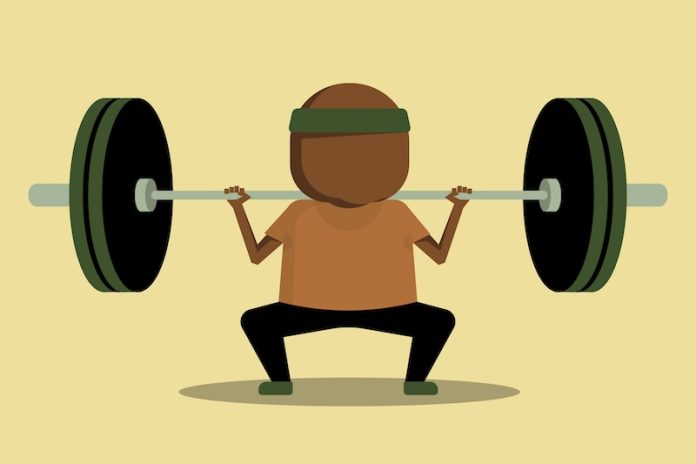
High blood pressure, or hypertension, is often called the “silent killer” because it typically has no symptoms but significantly raises the risk of heart disease and stroke.
Regular exercise is widely recommended to help manage blood pressure, but not all exercises are suitable for those with hypertension.
This review explains which exercises might be risky for people with high blood pressure and why, using clear and straightforward language.
Exercise generally benefits heart health, but certain activities can raise blood pressure to dangerous levels if not performed carefully.
When you have high blood pressure, your heart already works harder to pump blood. Adding intense exercise to the mix can place excessive strain on your heart and blood vessels.
Heavy weightlifting is one exercise to approach with caution. Lifting heavy weights can cause dramatic spikes in blood pressure during the lift.
This is due to the intense contraction of muscles, which compresses the arteries and temporarily limits blood flow, causing the heart to pump harder.
People with uncontrolled or severe hypertension might want to avoid high-intensity weightlifting or seek a modified routine that includes lighter weights and more repetitions to reduce this risk.
Sprinting or high-intensity interval training (HIIT) may also be risky. These activities cause sudden, intense bursts of exertion that can quickly raise blood pressure.
While HIIT can be beneficial for people with normal blood pressure or those whose hypertension is well-managed, it’s advisable for those with high blood pressure to start with more moderate, steady-state exercises like brisk walking or cycling.
Racquet sports such as tennis, squash, and badminton pose unique risks. These sports often involve quick bursts of activity and sudden stops and starts, which can cause significant fluctuations in blood pressure.
Additionally, the competitive nature of these sports can increase stress levels, further elevating blood pressure temporarily.
Skydiving, scuba diving, and other extreme sports are generally not recommended for people with hypertension. These activities can dramatically increase adrenaline, which naturally increases blood pressure.
Scuba diving, in particular, poses additional risks because the pressure underwater also affects cardiovascular function.
Despite these precautions, exercise remains crucial for managing hypertension. The key is choosing the right type of activity and intensity level.
Walking, jogging, cycling, swimming, and low-intensity aerobics are generally safe and effective for lowering blood pressure. These activities help improve heart function, manage weight, reduce stress, and enhance overall cardiovascular health.
Additionally, yoga and tai chi have been shown to be beneficial for those with high blood pressure. These exercises focus on controlled movements, balance, and breathing techniques, which help lower stress and blood pressure.
Regular physical activity is essential, but it should be done safely to ensure it benefits your health without causing additional risks. People with high blood pressure should consult with a healthcare provider before starting or changing their exercise routine.
A healthcare provider can recommend an exercise plan that considers your overall health, the severity of your hypertension, and your fitness level.
In conclusion, while exercise is a cornerstone of heart health, individuals with high blood pressure need to be mindful of the types of exercises they engage in.
Avoiding exercises that cause sudden spikes in blood pressure and opting for activities that promote steady and moderate increases in heart rate can help manage hypertension safely and effectively.
Through careful selection and regular practice, exercise can be a powerful tool in maintaining cardiovascular health and managing high blood pressure.
If you care about high blood pressure, please read studies that early time-restricted eating could help improve blood pressure, and natural coconut sugar could help reduce blood pressure and artery stiffness.
For more information about blood pressure, please see recent studies about How to eat your way to healthy blood pressure and results showing that Modified traditional Chinese cuisine can lower blood pressure.
Copyright © 2024 Knowridge Science Report. All rights reserved.



